Marco Polo Meets a Dragon? May 30, 2011
Author: Beach Combing | in : MedievalBeachcombing still mouse hunting so a brief and curious passage in Marco Polo 2, 40. It is an extract that scholars – depending on their proclivities – try and ignore or enjoy overly. Leaving the city of Yachi, and traveling ten days into a westerly direction, you reach the Province of Carajan [modern Yunnan on […]
Manned Kite Flight in Medieval China May 13, 2011
Author: Beach Combing | in : Medieval
**This post is dedicated to Ricardo R. who put Beachcombing onto the Chinese kite** School’s out for ever! Well actually just for ten days before the summer students arrive and another course is pushed off the cliff… Still for now it feels like for ever and Beachcombing is properly grateful. So much so that he […]
The Search for Fusang December 21, 2010
Author: Beach Combing | in : Ancient, Medieval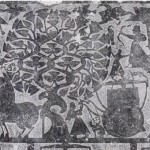
The snow is melting rapidly outside and just in time. Mrs B is suffering in the room above from what look like real contractions – Beachcombing conspicuously absent. Beachcombing then is going to let his source do all the talking today. If he hasn’t written much of a conclusion then the chances are that the […]
Homer Hasenpflug Dubs and Roman Legionaries in Ancient China December 20, 2010
Author: Beach Combing | in : Ancient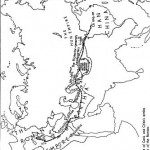
Drum roll, trumpet blast enter Homer Hasenpflug Dubs (obit 1969) an American-born Oxford don with a name that sounds as it it was purloined from an 1890s feel-good novel. Homer, to friends, was a capable if eccentric sinologist based out of ‘the other place’ for most of his teaching life. He wrote – as was […]
Crow Bombs: Avian Missiles in the Medieval World November 9, 2010
Author: Beach Combing | in : Medieval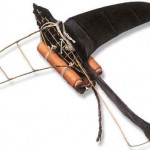
Beachcombing has spent the last few hours enjoying a medieval work named the Book of Fires (Liber Ignium). The author’s alleged name, Mark the Greek is not certain and the text survives in Latin that means we cannot be certain either that it was originally written in Greek: though the structure of the Latin sentences would suggest […]
Mystery Chinese Weapon from 1277 November 7, 2010
Author: Beach Combing | in : Medieval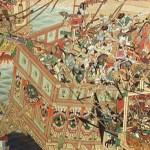
Beachcombing recently came across this extraordinary passage from the Chinese Sung Shih. In 1277 Lou Ch’ien-Hsia was besieging a fortification held by two hundred and fifty defenders. Frustrated, Lou Ch’ien-Hsia ordered his men to bring up a huo p’ao – a word Beachcombing will come back to. ‘He lit the huo p’ao and a clap of thunder was heard, […]
Antique Christians in Furthest China October 7, 2010
Author: Beach Combing | in : Medieval, Modern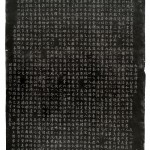
Beachcombing has often visited in these pages his favourite WIBT (‘wish I’d been there’) moments from history. And today he takes the gentle reader to another this time in China in honour of his mother and step-father who have recently fled the dominions for a holiday in the Far East. It is 1625 and the gutsy Portuguese […]
Ten Thousand Romans in Turkmenistan September 19, 2010
Author: Beach Combing | in : Ancient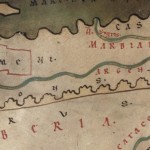
There are many reasons for which individuals have travelled a long way from home in history: money, love, fear… But a vitally important and generally overlooked motive is imprisonment. Soldiers taken in battle have often (and very sensibly) been moved from where they were captured to the furthest possible point from their own country to avoid […]
A Roman Emperor in Second-Century China? July 16, 2010
Author: Beach Combing | in : Ancient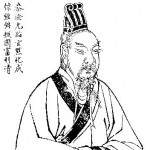
Classicists and Sinologists (experts on all things Chinese) spent much energy in the nineteenth and early twentieth century demonstrating that there had been contacts between the two greatest Empires of antiquity, the Chinese and the Roman. They succeeded to their own satisfaction and even came up with ‘evidence’ […]


